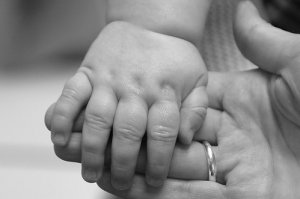What is it:
Postpartum Depression (PPD) is a common mental health diagnosis that affects 10%-15% of mothers. Mothers of the NICU have a higher chance of this diagnosis at 40% (Tahirkheli, 2014). With such a high probability rate it would seem to be common sense to screen at risk mothers, like those in the NICU, but unfortunately that is not the case. Multiple studies show that mothers of the NICU should have mandatory screened for PPD (Rogers, 2013). Screening women will allow more chances to help these mothers that develop PPD. By helping these mothers there will likely be better outcomes for the mother’s mental health and the infant’s overall health (Wyatt, 2019). Because of the lack of screening, mothers should be aware of the facts and fictions regarding Postpartum Depression.
Fiction:
- You are alone
- It is uncommon
- It is easy to identify
- Only weak women get Postpartum Depression
- There are enough screenings measures in action to support those most at risk
- You don’t have Postpartum Depression because you are not having harmful thoughts
Fact:
- 10%-15% of mothers develop Postpartum Depression
- 40% of mothers with a child in the NICU develop Postpartum Depression
- Risk factors include: personal past history of anxiety or depression, family history, and lack of support
- Early detection can improve outcome and quality of life from both mom and child
- There is not enough screening in place, particularly in the NICU
What are some barriers?
- Stigma
- Lack of resources/funds/healthcare
- Lack of knowledge
- Feeling alone or embarrassed
Research vs Media
Luckily, Postpartum Depression is a medical diagnosis that is correctly portrayed in both current research and media that I came across. Most inaccurate ideas and stereotypes of PPD is passed along from generational beliefs and old or dramatized movies. As a mother with a history of PPD, I can say first hand that my symptoms were hard to detect because I didn’t have any lack of bonding or negative thoughts. My symptoms were more like the ones explained in the first YouTube clip. Being more educated on the topic and educating other women could literally safe a life. Many times the internet can lead people to incorrect medical diagnosis but for me the internet saved me from myself.
If you feel as though you could be suffering from Postpartum Depression please seek help by contacting your doctor or a trusted friend or family member.
References
Rogers, C. E., Kidokoro, H., Wallendorf, M., & Inder, T. E. (2013). Identifying mothers of very preterm infants at-risk for postpartum depression and anxiety before discharge. Journal of Perinatology, 33(3), 171–176. https://doi.org/10.1038/jp.2012.75
Tahirkheli, N. N., Cherry, A. . ., Tackett, A. P., McCaffree, M. A., & Gillaspy, S. R. (2014).Postpartum depression on the neonatal intensive care unit: current perspectives. International Journal of Women’s Health, 6, 975–987. https://doi.org/10.2147/IJWH.S54666
Wyatt, T., Shreffler, K. M., & Ciciolla, L. (2019). Neonatal intensive care unit admission and maternal postpartum depression. Journal of Reproductive and Infant Psychology, 37(3), 267–276. https://doi.org/10.1080/02646838.2018.1548756


